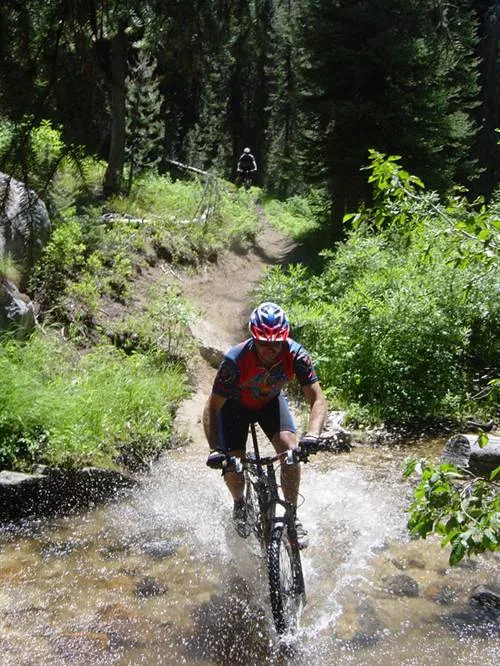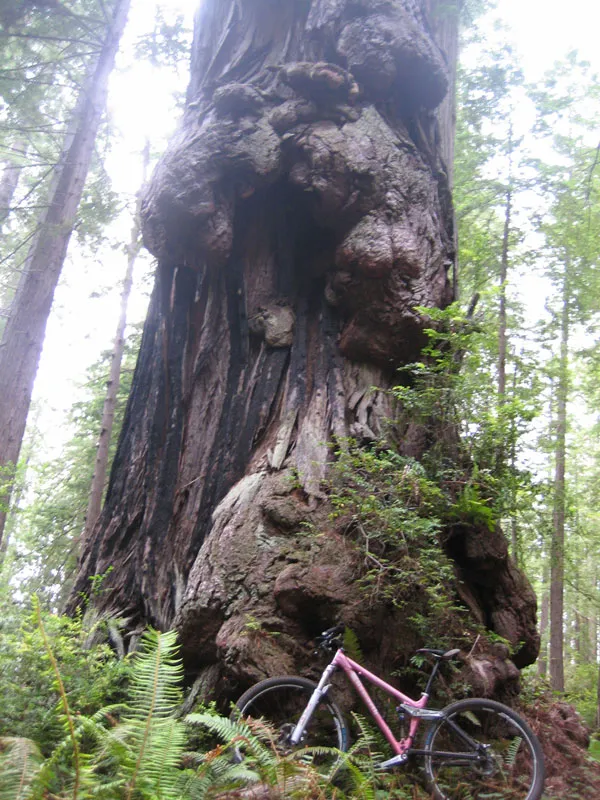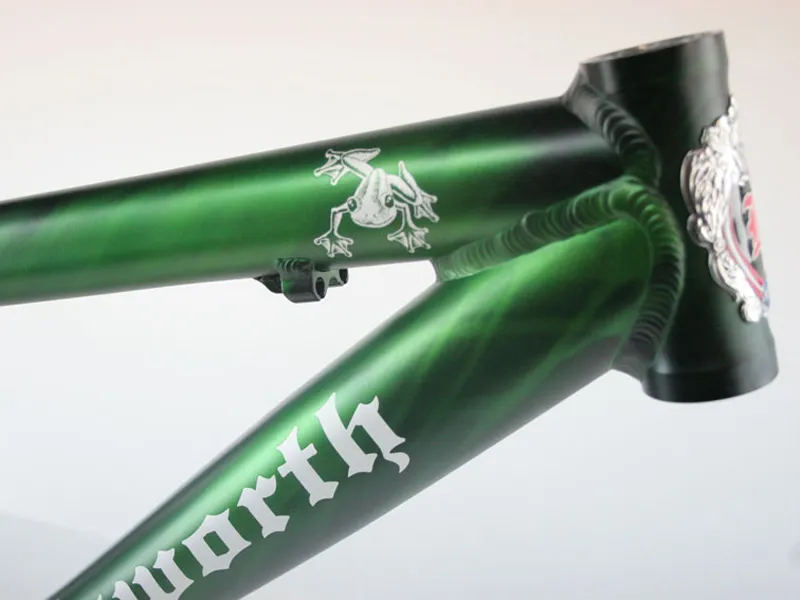Tony Ellsworth is regarded as one of mountain biking's top suspension designers. Some would even argue that his Instant Centre Tracking (ICT) system is the best all-round design, with Ellsworth bikes winning countless awards Stateside and in the UK. BikeRadar spoke to the enigmatic designer about his design and bike building philosophy, the reason why he came up with ICT, and his continued attempts to have a carbon neutral footprint.
The origins of ICT
Tony doesn’t consider himself to be ‘in the bike industry’. With a background in bio physical relationship design, he came to bike design in 1991 after a friend bet him he couldn't make a frame that he wouldn’t complain about. “I made it," says Tony, "And then he wanted one too, as did others, and so on.”
He isn't an engineer, and freely admits that he can’t weld. But he understands the mechanical processes and materials that act on the experience of a great riding frame – in a nutshell, how it will feel or behave.
Tony came up with ICT in 1993, to help his wife continue cycling through a period of terrible lower back pain. Although he knew he had come up with a great design, it was mechanical engineer Mike Kojima who taught Tony why his design was functioning so well, and how to make it function even better using Instant Center technology. They hold joint patents, and continue to work together on different interpretations of the design to this day.
So, what exactly is ICT?
Essentially, Instant Center Tracking is a four-bar linkage system. A key question is how it differs to the Horst Link design used in Specialized's FSR bikes.
Tony says the patents that AMP Research (Horst Leitner’s design company) filed in the mid-1990s were for a system that had the rear shock as part of the suspension and "merely established what a four-bar link suspension would look like”.
He and Kojima filed papers shortly afterwards which patented a series of pivots, including the crucial one on the chainstay.
Tony believes that “ICT is superior to FSR because the Instant Center follows the chain force line, creating an anti-squat system where pedalling forces are independent of suspension function”. In contrast, “the Specialized FSR design has the Instant Center below the chain torque line, which means the suspension squats, causing energy loss".
Tests seem to back this up, with BikeRadar's Steve Worland concluding that the ICT design is “distinctively different to, and in most cases better than, other chainstay linkage designs". In his review of Ellsworth’s new 6in travel Moment 3, Steve says: “The rear suspension remains remarkably stable under heavy pedal loads at the same time as offering super-plush and superbly controlled responses on both big hard edged bumps and the smaller pittery-pattery stuff."
Ellsworth use the system on all of their full-suspension bikes, from 4in cross-country race whippets to full-on downhill monsters. For a more in-depth explanation, visit www.ellsworthbikes.com/advantage and click on the ICT tab.
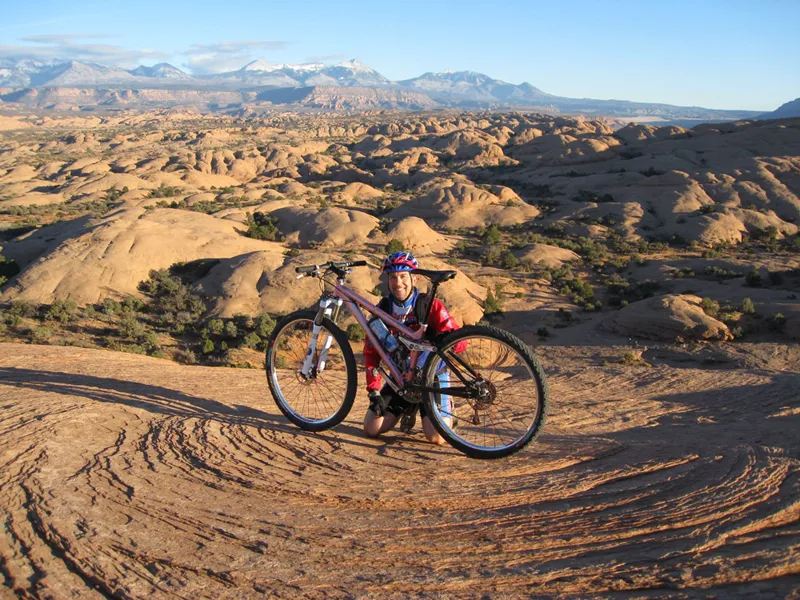
Form versus function
Tony sits on the function side of the long-running form versus function debate. With a wry smile, he puts forward his argument: “If you place form before function, it’s like dating a supermodel who can’t speak English! Beautiful to look at, but you can’t have a conversation with her.”
For him, bike design is exactly the same: “The bike gives pleasure by performing first, and it’s great to look at second. The conversation with the trail comes from the function. The form is only important if it enhances that conversation, or as my Mom is known to say, “the great looks are just frosting on the cake”.
Tony has worked hand-in-glove with baseball bat manufacturers Worth for many years. As he improves upon each tubing design, Worth come up with an exact match to his design. “We make subtle changes to the form only if it reduces weight without compromising strength and stiffness," says Tony.
A modest statement, considering that together they make some of the lightest, yet strongest and stiffest frames in each of Ellsworth’s respective classes.
In it for the long run
Tony is not interested in fads or complete design changes to encourage sales. Rather, he’s interested in longevity.
He argues that his four-bar link design lasts longer than many perceived-to-last-longer single pivot designs: “It’s not about the number of pivots, it’s about how well it’s done. All of our ICT pivots use full complement sealed bearings that are proven to last years, whatever the conditions.”
In addition, he argues that they’ll last longer than single pivot bearings “as there’s less load per bearing in an open four-bar design”.
By way of example, he says non-sponsored Ellsworth riders are a regular sight on 24-hour race podiums because in these races “longevity and reliance are more important to the rider, as they don’t have the luxury of swapping onto a new bike every lap, like the pro riders do”.
Tony adds that “each Ellsworth frame is anodised inside and out with a special coating, that works like a non-stick frying pan”. This ensures that mud and grit do not congregate and compromise the frame. It also makes cleaning an Ellsworth noticeably easier.
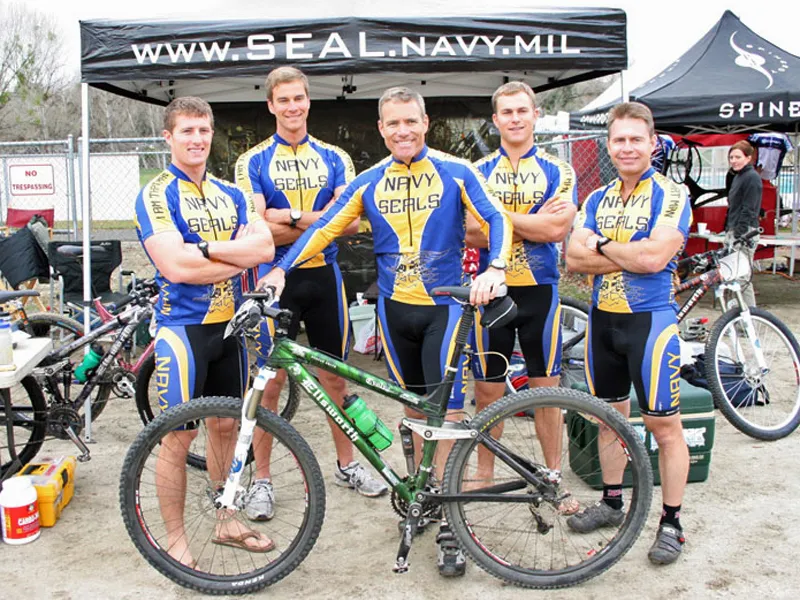
Ellsworth as a world brand leader
Tony makes the bold claim that Ellsworth are world leaders in quality and performance, though he accepts that this is not the case when it comes to sales volume.
“Every single competitor you can think of in the bike industry knows EXACTLY who Ellsworth is, and probably even has one of our bikes," he says. "Every single Ellsworth frame is made by hand, with some very specific features and advantages that I want in my personal frame. Each frame design is a little work of art for me. Each one is meant to excel in some very specific ways at what it was designed to excel at."
Profit margins are tighter on US-produced products, meaning that Ellsworth have less to spend on advertising, sponsorship and marketing than many of their riders. As a result, “Ellsworth as a company depends almost exclusively on the satisfaction of Ellsworth owners referring their experience to a friend, who then also loves their new Ellsworth and tells another friend”.
But it isn’t just about profit margins. For Tony, it’s also an ethical choice. He is fiercely proud of being an American, and feels he has a duty to support the US economy. In fact, draw him into a conversation on the credit crunch at your peril.
He says: “My opinion is that, sure, there’s been an economic downturn, economic cycles are as old as economies themselves, but it’s been blown out of all proportion by the global media, who have contributed to making people panic and stop spending.”
Balance
Tony says it costs him up to five times more to make bikes in the US than mass producing in China. But, although he acknowledges that they make some good bikes in Asia, he is more interested in supporting his local community.
"I want to keep my staff employed, and to pass on their skill to the next generation," he says. "That’s more important to me than pure profit. I've invested in aerospace grade welders and some fantastic engineers, some of the best guys in the business, and they’re like a family to me.”
He is keen to expand his business where he feels there is the potential for growth. As a result, Taiwan figures in his plans. 'The Ride', his striking hybrids, are designed in the US but made and assembled in the Far East as it “just wasn’t possible to make them in the US and still be affordable”.
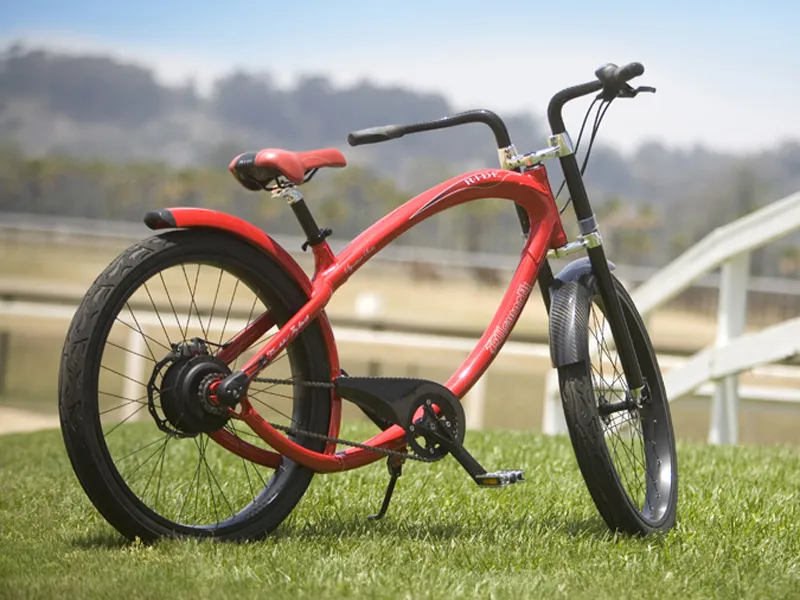
Tony makes up for this resource-heavy outsourcing with a super-energy-efficient facility for the Ellsworth brand – he has been generating his own solar powered electricity at his Southern Californian headquarters since 2004 and is about to add wind power as well. And, unusually for a company, they manage to put energy back into the national grid.
“My dad, who grew up in the Great Depression, always said “waste not want not” and I think that stuck on me as I grew up," he says. "I love having stuff as much as the next person, but material wealth and resource consumption needs to be had and done at the right price.
"Generating our power from the sun and wind is a no brainer. So I’ve made that part of our company policy and facilities because it makes me happy and because I want others to see that it’s possible to have what you want, while also being efficient and responsible.”
Tony is keen that Ellsworth “recycle everything we can figure out how to recycle, re-use what we can figure out how to re-use, and reduce everything that we can figure out how to reduce".
He says: "Here’s a cool example. We bought a special machine centre that can reduce the amount of material we use when machining parts by up to 30-40 percent. That same machine can run “lights out” – it can be monitored remotely while folks sleep and the energy it consumes is not in ‘high peak demand’ during the day.” And, what’s more, Tony says with a smile: “It makes the most amazing machined components in the world.”
In his spare time, Tony does volunteer work, assisting those in the local community who lost their homes in the 2007 California firestorm by rebuilding with energy-efficient, sustainable building materials and procedures.
Like most Americans, he’s proud of having a large house, but in his case “it runs on solar and wind electricity, with a swimming pool that is heated by the rocks around it”.
Recently, he “spent four days transplanting some big beautiful trees from a homeowner 40 miles away who was going to cut them down". He says: "I love trees. I moved them to my house, so they could continue to fill the measure of their creation.”
Perhaps the ultimate balance will be achieved if Tony's The Ride hybrid – which features NuVinci's continuously variable planetary transmission instead of conventional gears – can help persuade people in the US to leave their cars at home and cycle instead.
